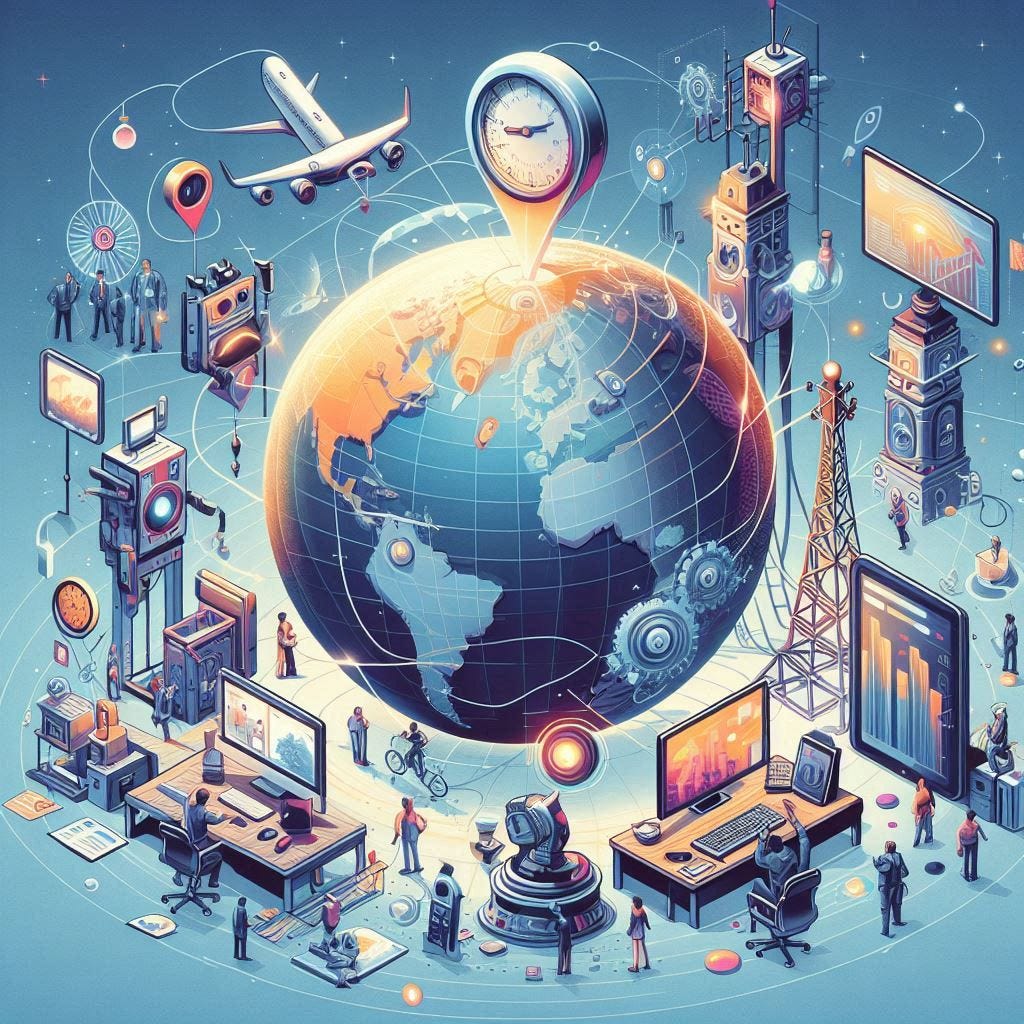The Job Market Insider
Remote Work Has Changed the Game - Here's How to Win It
Hey there,
Last week, we discussed crafting your digital career story. This week, I want to shift our focus to something happening right now: the complete transformation of where and how we work.
Remember when "working from home" was a rare perk? Those days are gone. According to McKinsey, 58% of Americans now have the option to work remotely at least one day per week, and 35% can work remotely full-time. But these statistics only tell part of the story.
The Remote Work Revolution Is Not What You Think
I'm seeing that the question is no longer "remote or office?" but rather "what blend of environments best serves both organizational needs and individual performance?"
Companies are experimenting with everything from:
Hybrid schedules with mandatory in-office days
Fully distributed teams across multiple time zones
"Remote-first" cultures where the office is optional
Asynchronous workflows that don't require simultaneous collaboration
Each model creates its unique challenges and opportunities for career growth.
The Hidden Skills Gap Most Remote Workers Don't Know About
Through my coaching practice, I've noticed something interesting: Technical skills alone aren't enough to thrive in remote environments. There's a whole separate skill set that determines who advances and who stagnates in distributed teams:
Digital presence - The ability to maintain visibility despite physical distance
Virtual relationship building - Creating trust and rapport through screens
Self-management systems - Structured approaches to productivity without supervision
Digital communication fluency - Mastering the nuances of tone and clarity in written form
Technology Goes Far Beyond Zoom
The most successful remote workers have mastered an entire complex of tools:
Asynchronous communication platforms
Digital workflow systems
Virtual whiteboarding tools
Project management frameworks
Documentation habits that create visibility
Remote work demands technical proficiency that directly impacts your ability to contribute. One hiring manager told me recently, "I don't always care about years of experience. Show me you can leverage our tools to solve problems without hand-holding."
The Future Is Coming Fast - Are You Ready?
Looking ahead, I'm watching several trends that will reshape remote work even further:
VR/AR collaboration tools creating more immersive remote experiences
AI-powered productivity assistants that bridge communication gaps
Greater distinction between "remote-friendly" and truly "remote-first" organizations
The professionals at the forefront of these developments will have significant advantages as the landscape evolves.
Three Steps to Take This Week
Document your remote accomplishments. Create specific examples showing how you've delivered results independently, collaborated virtually, and communicated effectively across digital channels.
Audit your remote setup. Is your home office professional? Do you have clear boundaries between work and personal life? These foundations signal to potential employers that you understand remote work demands.
Identify your remote work style. Not all remote arrangements are equal. Consider which model aligns with your working preferences, career goals, and personal circumstances.
What's Next?
Next week, I'll discuss mastering asynchronous video interviews.
Before You Go
What's been your biggest challenge working remotely? Leave a comment and let me know. Your response might shape a future newsletter topic.
Keep pushing forward, Lee.
P.S. If you found this valuable, forward it to a friend struggling with remote work dynamics. Sometimes, a new perspective is all it takes to transform challenges into opportunities.
Did someone forward this to you? Subscribe here to get these insights in your inbox every Friday.
#RemoteWork #FutureOfWork #CareerDevelopment #DistributedTeams



